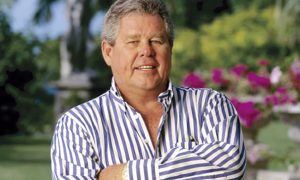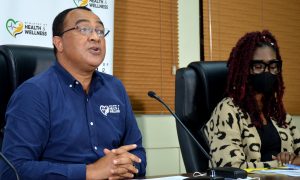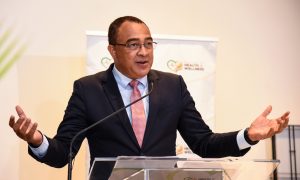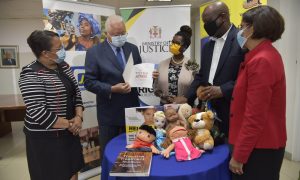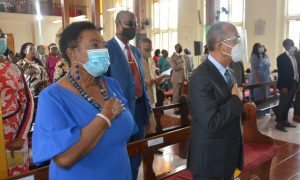KINGSTON, Sept. 1 (JIS): The country’s young people are being encouraged to get involved in police youth clubs in order to bring about meaningful change in their lives and contribute to the progress of their communities.
Assistant Commissioner of Police (ACP) in charge of the Community Safety and Security Branch (CSSB), Bishop Dr. Gary Welsh, says the clubs serve a positive purpose, by impacting the communities of which they are a part, while also developing the leadership skills of members.
“They help to harness young talent, with emphasis on leadership capabilities, social entrepreneurship and the adoption of a culture of lawfulness. Accountability and action is reinforced with participants being shown that individually, they can make a difference but collectively, the reach is far greater,” he tells JIS News.
There are 543 registered police youth clubs across the island, however, 30 per cent of them have become dormant due to falloff in membership, as persons migrate, pursue higher education or work, or they simply lose interest due to lack of effective programmes to keep them engaged.
Over the years, the clubs, located in the island’s 19 police divisions have been a conduit through which the JCF moulds and provides a positive influence on the young people of this country, instilling discipline, responsibility and respect for law and order, in order to steer them away from a life of crime.
In fact, many of the members have gone on to become members of the police force.
The clubs have successfully identified and developed the competencies of the youth and they contribute to their communities through engagement in activities such as caring for the elderly, adopting and improving basic schools, and hosting and engaging in sporting events.
The entrepreneurial skills of the members are also harnessed through engagement in small or micro business enterprises.
In Clarendon, for example, police youth clubs have been assisted with start-up businesses in order to become more self-sufficient.
With kind assistance from the Custos of the parish, Hon. William Shagoury, several clubs have received chickens and pigs to embark on income generating ventures.
“We try and help by giving them some layers. They (club members) would be ready to start making money within a month and a half. We give them the feed, the (feeding) pans and a lesson in taking care of the chickens. They build the coops and once the chickens start laying they are able to make a start,” he tells JIS News.
Mr. Shagoury says the programme started eight years ago and some clubs have been doing well.
One of the outstanding features of the police youth clubs is that they help to bridge the gap between the police and citizens. As the police works with the youngsters in the communities, hostilities are reduced, and trust is built, which goes a far way in addressing crime and violence.
Senior Superintendent of Police (SSP), Cornwall “Bigga” Ford, tells JIS News that the revival of clubs in the West Kingston division, which he heads, is bringing about positive change in the communities where they operate.
Since SSP Ford took over the reins in April, the Denham Town, Admiral Town, Trench Town and Rose Town police youth clubs have been revitalised.
SSP Ford says he feels encouraged by the re-organisation of the clubs. “Since I’ve been there I have revived all of them. We are getting membership and we have identified police leaders. I am enthused. There are a lot of young people with high quality leadership skills,” he tells JIS News.
“They are helping to pull in other young people. They have worked in the stations and they served as counsellors in the summer youth camps so there is an impact,” he adds.
SSP Ford notes that the clubs, which promote positive inclusion and meaningful engagement for the young people go a far way in eradicating the “informer” label, which prohibits meaningful, trustworthy relationships between citizens and police.
He says that the police, working with youth club leaders in community development initiatives and sporting activities such as football, has resulted in the retention of club membership.
“We have a five-a-side internal competition for the police and we allow the youth clubs to insert two teams in it. They are one of the finalists in that. We do not treat them differently. We are trying all kinds of things,” he notes.
A book drive for back-to-school was also initiated, he informs.
SSP Ford says he plans on engaging the business community to provide much-needed equipment and resources for the survival of the clubs.
Meanwhile, as it relates to the inactive clubs, SSP Karina Powell-Hood, who is attached to the CSSB Branch, tells JIS News that an assessment will be carried out to determine whether they can be revived.
She says to remain active, clubs need to put programmes in place that are dynamic and can keep members engaged.
She notes that young people tend to gravitate to organisations that involve activities such as sports.
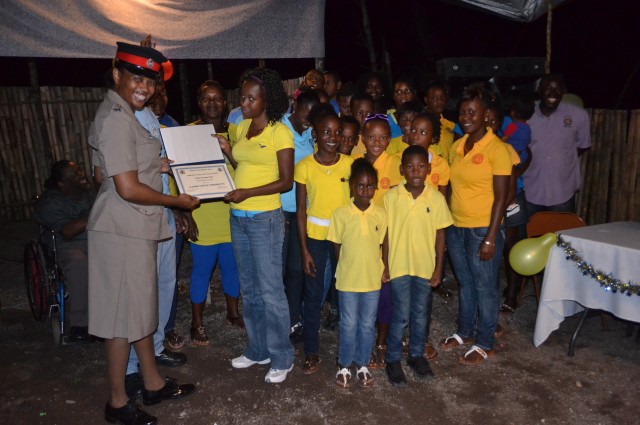

 Caribbean News7 days ago
Caribbean News7 days ago
 Caribbean News7 days ago
Caribbean News7 days ago
 Caribbean News1 week ago
Caribbean News1 week ago
 Caribbean News7 days ago
Caribbean News7 days ago
 Bahamas News7 days ago
Bahamas News7 days ago
 News7 days ago
News7 days ago
 Bahamas News1 week ago
Bahamas News1 week ago
 News7 days ago
News7 days ago
